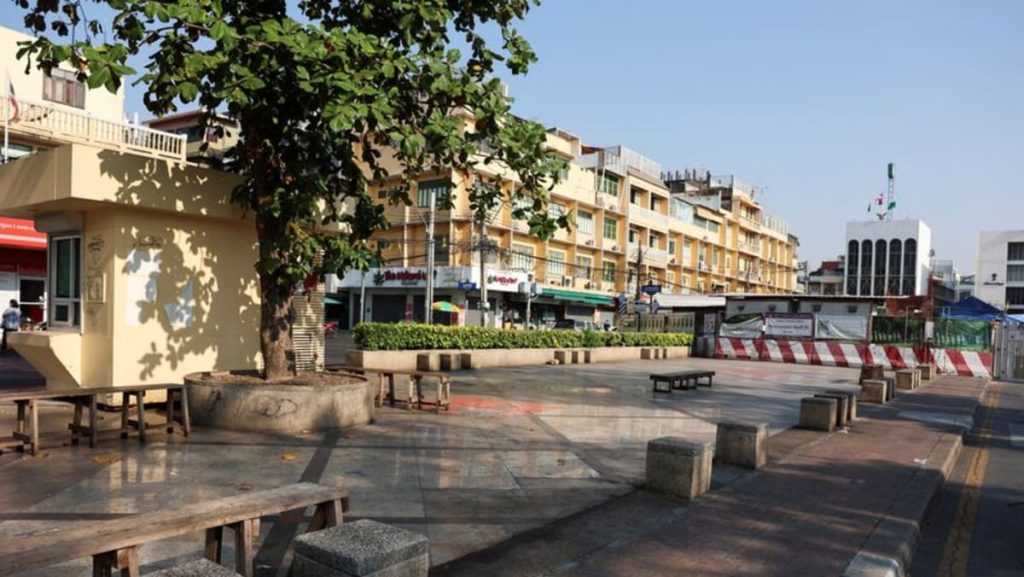The assassination of Lim Kimya, a former member of the dissolved Cambodian National Rescue Party (CNRP), in Thailand has cast a long shadow over the already tense political landscape of Cambodia. Found dead in a pool of his own blood, Lim Kimya’s demise has reignited concerns about the safety and security of exiled Cambodian opposition figures and sparked renewed accusations against the ruling Cambodian People’s Party (CPP). While Thai authorities are tasked with investigating the murder, the incident underscores the broader pattern of suppression and intimidation faced by political dissidents who have fled Cambodia in the wake of the CNRP’s dissolution.
The CNRP, once the primary opposition force in Cambodia, was forcibly dissolved by a court order in 2018, just prior to a general election. The party was accused of orchestrating a treasonous plot, a charge vehemently denied by the CNRP and widely viewed as a politically motivated maneuver by the CPP to eliminate any credible challenge to its authority. The dismantling of the CNRP effectively silenced dissenting voices within Cambodia, paving the way for the CPP’s continued dominance under the leadership of Prime Minister Hun Sen, who has held power for more than four decades. The incident involving Lim Kimya tragically highlights the vulnerability of those who once belonged to the now-defunct opposition party, even beyond Cambodian borders.
The circumstances surrounding Lim Kimya’s death paint a grim picture. Discovered in his rented home in Thailand, the scene suggested a violent struggle, with a photograph showing his body amidst a significant amount of blood. The immediate reaction from human rights organizations points to the well-documented pattern of harassment and intimidation faced by exiled CNRP members. Human Rights Watch, for instance, has called for a thorough investigation by Thai authorities, emphasizing the Cambodian government’s history of targeting former CNRP members who have sought refuge in neighboring countries. This pattern of alleged persecution extends to surveillance, threats, and even violence, creating a climate of fear and uncertainty for those who have dared to oppose the CPP’s rule.
The response from the Cambodian government has been dismissive, with spokesperson Pen Bona stating that the killing is solely a matter for Thai jurisdiction. He further characterized the accusations against the Cambodian government as the work of opposition “extremists.” This denial of any involvement is consistent with the CPP’s long-standing refusal to acknowledge its role in stifling political dissent. Despite extensive documentation by international human rights organizations and numerous accounts from exiled activists, the Cambodian government maintains its innocence, attributing such accusations to politically motivated smear campaigns.
The silencing of the CNRP in 2018 marked a significant turning point in Cambodia’s political trajectory. The party’s dissolution effectively cemented the CPP’s grip on power, eliminating any viable opposition and ushering in an era of unchecked political control. Scores of politicians and activists associated with the CNRP have been jailed, often in absentia, on various charges, while hundreds more have fled the country fearing persecution. This crackdown on dissent has created a chilling effect on political discourse within Cambodia, stifling freedom of expression and assembly.
The killing of Lim Kimya serves as a stark reminder of the ongoing struggles faced by Cambodian political exiles. Their precarious situation, coupled with the Cambodian government’s denial of any involvement in their persecution, necessitates a thorough and impartial investigation by Thai authorities. The international community must also hold the Cambodian government accountable for ensuring the safety and protection of all its citizens, regardless of their political affiliations. The pursuit of justice for Lim Kimya and the protection of those who remain at risk are essential for upholding fundamental human rights and promoting a more democratic and just future for Cambodia. The incident highlights the urgent need for international pressure on the Cambodian government to respect fundamental freedoms and ensure accountability for human rights violations. Without such pressure, the climate of fear and repression that has enveloped Cambodia will likely persist, jeopardizing the lives and liberties of those who dare to challenge the status quo.

